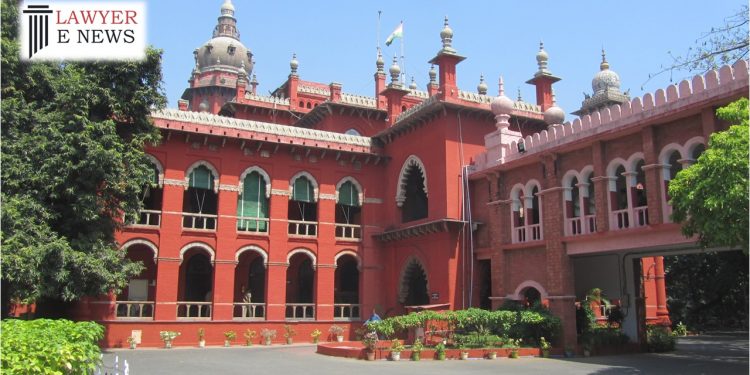-
by Admin
15 February 2026 5:35 AM



In a significant ruling, the High Court of Madras has reversed the decision of the Railway Claims Tribunal, which had dismissed a compensation claim filed by the dependents of a deceased railway passenger. The court's judgment underscores the broad interpretation of "untoward incident" under the Railways Act and highlights the obligations of the railway authorities to provide compensation in cases of accidental deaths, even in circumstances involving alleged passenger negligence.
The appellants, Riyana Begum and others, filed a claim for compensation following the death of N. Jahankir, a vegetable merchant, who was fatally injured in a railway accident on October 5, 2018. Jahankir and his friend John had purchased tickets at Kuzhithurai railway station to travel to Madurai. While waiting on platform no. 2, they were struck by train No. 12660, Shalimar to Nagercoil, Gurudev Express, resulting in Jahankir's death at Kuzhithurai Government Hospital.
The Railway Claims Tribunal had dismissed the claim, stating that the deceased was trespassing and sitting on the edge of the platform, an act not considered an "untoward incident" under the Railways Act.
The High Court emphasized that under Section 124-A of the Railways Act, compensation is payable for injuries or death resulting from untoward incidents, which include accidental falls and other mishaps involving passengers, irrespective of any wrongful act or negligence by the railway administration.
The court rejected the Railway Claims Tribunal's conclusion that Jahankir's actions amounted to trespassing. The court noted, “Even if the deceased had crossed the tracks or was sitting at the platform edge, it does not automatically negate the liability of the railways to compensate for the untoward incident unless it is proven that such actions were intentional and self-inflicted.”
The court extensively referenced the Supreme Court’s decision in Union of India vs. Rina Devi (2019), which clarified that compensation under Section 124-A follows a no-fault liability principle. It stated, "Death or injury in the course of boarding or de-boarding a train is an 'untoward incident' entitling a victim to compensation, and negligence or contributory negligence by the victim does not bar such claims."
The High Court reiterated that once it is established that the deceased was a bona fide passenger, the burden shifts to the railways to prove exceptions under Section 124-A, such as self-inflicted injury. The court found no substantial evidence from the railways to support their claim that Jahankir’s actions fell within these exceptions.
Justice K. Rajasekar remarked, "The evidence does not conclusively establish that the deceased's actions were criminally negligent or intentionally self-inflicted. Therefore, the denial of compensation by the Railway Claims Tribunal was unfounded and is hereby overturned."
The High Court's ruling underscores the judiciary's commitment to ensuring fair compensation under the Railways Act. By emphasizing the railways' burden to prove exclusions and upholding the no-fault liability principle, this judgment serves as a crucial precedent in the interpretation of "untoward incidents" and passenger rights.
Date of Decision: 17.04.2024
RIYANA BEGUM. B & ORS. VS UNION OF INDIA THROUGH GENERAL MANAGER,
[gview file="https://lawyerenews.com/wp-content/uploads/2024/06/Mad-17-April-24-Compensation-Railway-Civil.pdf"]
